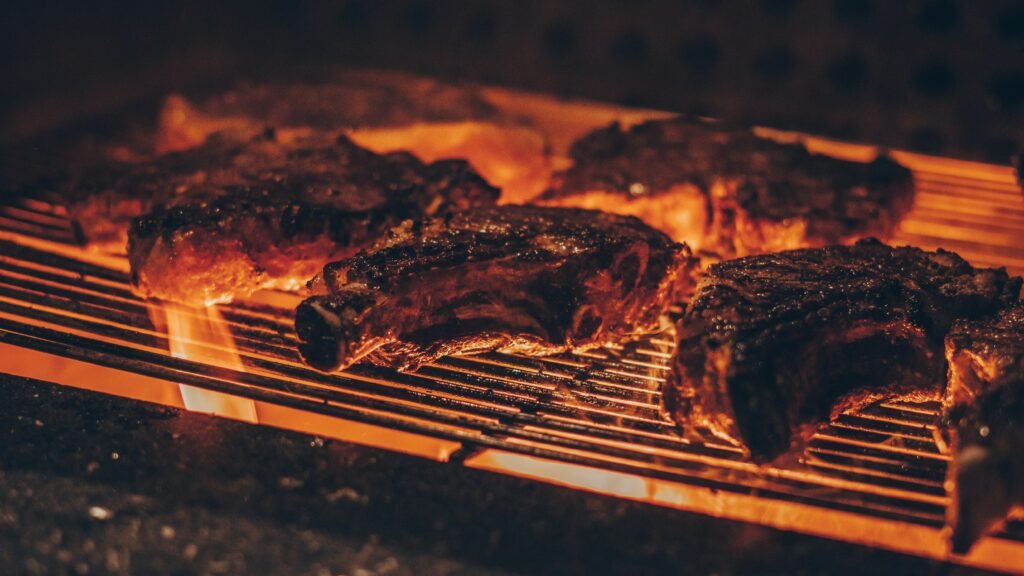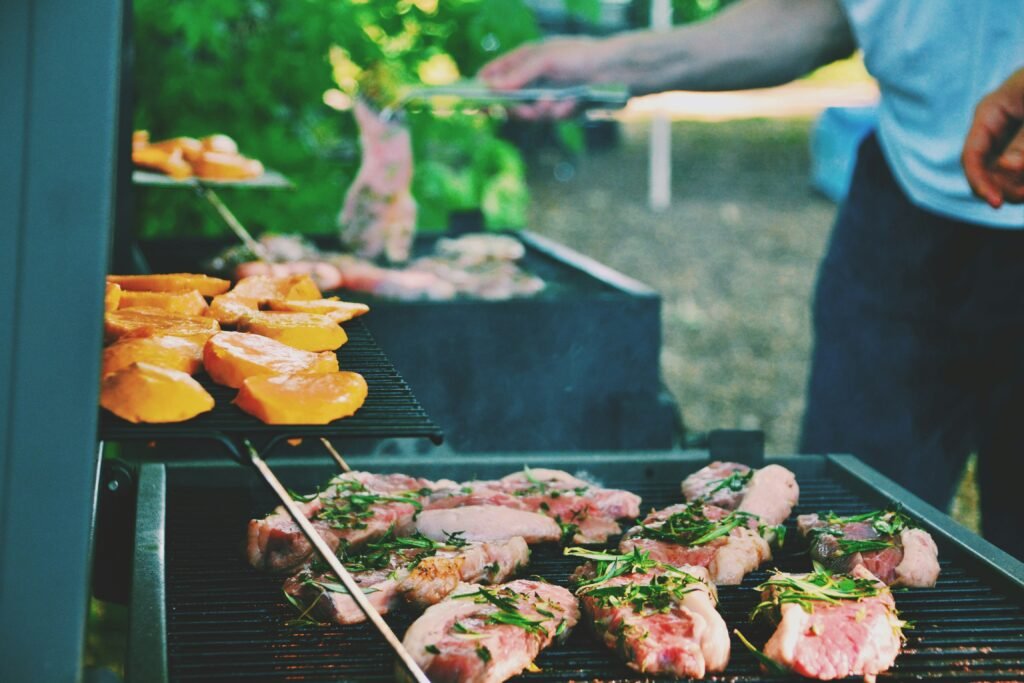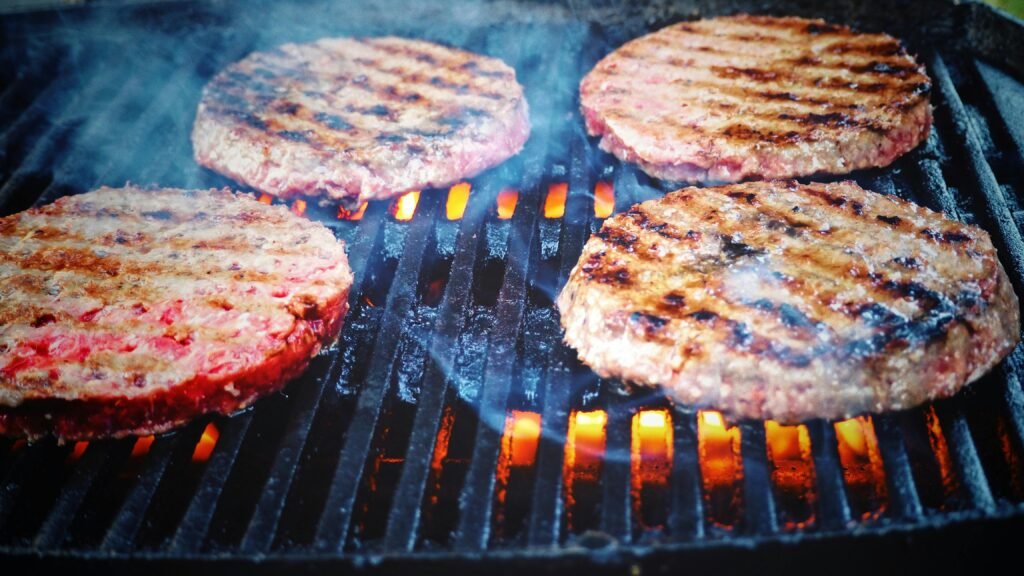Have you ever found yourself wondering how to achieve that perfect smoked flavor in pork that keeps people returning for more? We often imagine the delectable sensation of smoked pork, the kind that makes the neighbors jealous and keeps them knocking on our doors for dinner invitations. Let’s take this culinary journey together and discover the art of smoking pork, with all its secrets, tips, and nuances.

This image is property of images.unsplash.com.
Understanding the Basics of Smoking Pork
Before we get our hands greasy, let’s first understand the concepts and basics behind smoking pork. Smoking isn’t just a cooking method; it’s an experience and a tradition steeped in history and flavor.
What is Smoking?
Smoking is the process of flavoring, cooking, or preserving food by exposing it to smoke from burning or smoldering material, most often wood. The smoke infuses the meat, lending a rich, complex flavor that’s both savory and sweet. It’s the kind of thing that we might imagine enjoying around a campfire, only slightly less rustic and more prone to ritualized arguments over temperature and seasoning.
Why Pork?
Why do we go for pork when there are so many other meats? Well, let’s be honest, pork has that magical quality of adapting to almost any flavor we throw at it while maintaining its juicy integrity. The fat content in pork helps it absorb the smoky flavors beautifully, and it’s generally forgiving of amateur mistakes, which is a real boon if we’re just starting out or have a penchant for jumping into things without looking.
Choosing the Right Cut
Selecting the right cut of pork is just as important as the smoking process itself. Butcher shops and supermarkets offer a variety of pork cuts, and not all are created equal when it comes to smoking.
| Pork Cut | Flavor Profile | Smoking Time | Ideal Temperature |
|---|---|---|---|
| Pork Shoulder / Butt | Rich, fatty | 8-12 hours | 195–205°F |
| Pork Ribs | Tender, flavorful | 5-7 hours | 190–203°F |
| Pork Tenderloin | Lean, mild | 2-3 hours | 145°F |
The pork shoulder or butt is a favorite for its fatty richness and ability to cook down into tender, delectable pieces. Ribs? They’re ideal for those of us who love a good gnaw session. And for a quicker, leaner option, there’s always the tenderloin.
Preparing the Pork
So we’ve picked our cut. What, dear friends, do we do next? It’s time to prep.
Marinating and Seasoning
We start by deciding on a marinade or rub. Marinating introduces moisture and flavor into the pork, while a good rub creates a flavorful crust.
A simple rub can often involve common pantry items:
- Brown Sugar: Adds sweetness and helps caramelize the outer layer.
- Paprika: Provides color and a hint of smoky flavor before we even get to the smoking bit.
- Salt and Pepper: The workhorses of flavor.
- Garlic Powder, Onion Powder, or Cayenne Pepper: Each adds its own character and depth.
Mix these and coat the pork thoroughly, like it’s a sunscreen slathering session on a beach day.
Letting it Rest
After applying the rub or marinade, let’s give the pork time to absorb these flavors. Ideally, we’ll let it sit in the refrigerator for at least a few hours, though overnight is even better. This is the part where we exhibit patience, however difficult it may be, trusting that our delayed gratification will, in fact, gratify.

This image is property of images.unsplash.com.
Setting Up the Smoker
A pivotal step in our journey is setting up the smoker. Whether we’re using a charcoal, electric, or pellet smoker will determine a few of our next steps.
Choosing the Right Wood
The type of wood we choose will directly influence the flavor of our pork. Here’s a quick guide:
| Wood Type | Flavor Profile | Best for |
|---|---|---|
| Hickory | Strong, bacony | Pork shoulder, ribs |
| Applewood | Mild, fruity | Tenderloin, ribs |
| Oak | Medium, smokey | Any pork cut |
| Cherry | Sweet, fruity | Ribs, butt |
Hickory gives a robust, smoky aroma – think of it as the espresso of wood chips, while fruit woods like apple and cherry infuse a subtler, sweeter flavor. We choose depending on our palate’s preference.
Temperature and Timing
Maintaining a consistent temperature is crucial when smoking. We’d liken it to coaxing a baby to sleep: it takes patience, and sudden noises (or temperature spikes) can ruin everything.
For most pork cuts, keeping the smoker between 225°F and 250°F is optimal. We should check in on our pork periodically, using a meat thermometer to ensure we’re on track.
Smoking the Pork
With our wood and smoker ready, it’s time for the main event: smoking the pork.
Placing the Pork in the Smoker
Place our pork on the smoker’s grate, fat side up. Doing this allows the fat to render and baste the meat in its own juices. Close the smoker lid and let the magic begin.
Monitoring and Basting
While smoking, we might find ourselves tempted to check and prod every ten minutes, but it’s best to let the process work mostly uninterrupted. Every hour, a quick peek to ensure everything’s swimmingly—is okay, maybe basting it with a mixture of apple cider vinegar and some leftover rub for extra moisture.
Wrapping – The Texas Crutch
Around the halfway mark, consider using the Texas Crutch—a method involving wrapping the pork in foil or butcher paper. This helps retain moisture and can speed up cooking time when the meat enters the notorious “stall” (where the internal temperature halts for a perilously excruciating stretch).

This image is property of images.unsplash.com.
Finishing Touches
Our pork is smoked, and the hard part’s behind us. Now, it’s time to work on those finishing touches that elevate smoked pork from good to legendary.
Letting it Rest Again
Once removed from the smoker, we should let the smoked pork rest, wrapped, for about 30 minutes. This lets the juices redistribute, ensuring that each slice is as moist and flavorful as the next.
Slicing and Serving
Unwrap our masterpiece and get ready for the big reveal. Slicing against the grain is generally the best approach, offering tender bites. Arrange them on a platter, perhaps with a subtle fanfare of garnish if we feel particularly chef-like.
Sides and Pairings
What’s pork without a few companions on the plate? Consider classic pairings like coleslaw, baked beans, or cornbread. For the adventurous, maybe a smoked bourbon BBQ sauce on the side.
Troubleshooting: Common Issues and Solutions
As with any culinary adventure, things may not always go as planned. Let’s look at some common smoking challenges and how we might overcome them.
Pork That’s Too Dry
If our pork ends up drier than expected, it might be due to excessive smoking or a lack of fat content. Wrapping during smoking and ensuring the meat reaches—but does not exceed—the ideal temperature can prevent this. Serving it with a sauce or gravy can also help moisten each bite.
Smoke Flavor Too Strong
Over-smoking can lead to a bitterness that overpowers the pork’s natural flavors. If we’ve accidentally smoked our pork like a moth to a flame, it’s fixable. Balancing it with sweeter side dishes or a honey glaze can help mellow the intensity.
Temperature Spikes
Quick spikes in temperature are common if wind or external conditions affect our smoker. We can manage these fluctuations by physically blocking wind or opening and closing the smoker vents to modulate oxygen flow.
Conclusion
Smoking pork is as much art as it is science, a delicate dance between heat, time, and seasoning. By taking the time to understand each step, we’ve unraveled the mysteries of turning a simple cut of pork into a mouth-watering masterpiece. Our next smoked pork meal won’t just be food—it’ll be an experience, a testament to our patience, skill, and maybe a hint of stubborn trial and error.
As we savor each bite of the delectable smoked pork, we’ll likely share stories of our smoking journey, or nod along appreciatively to the barrage of compliments coming our way. Our time and effort culminate in flavor, aroma, and the joy of meat smoked to utter perfection.



